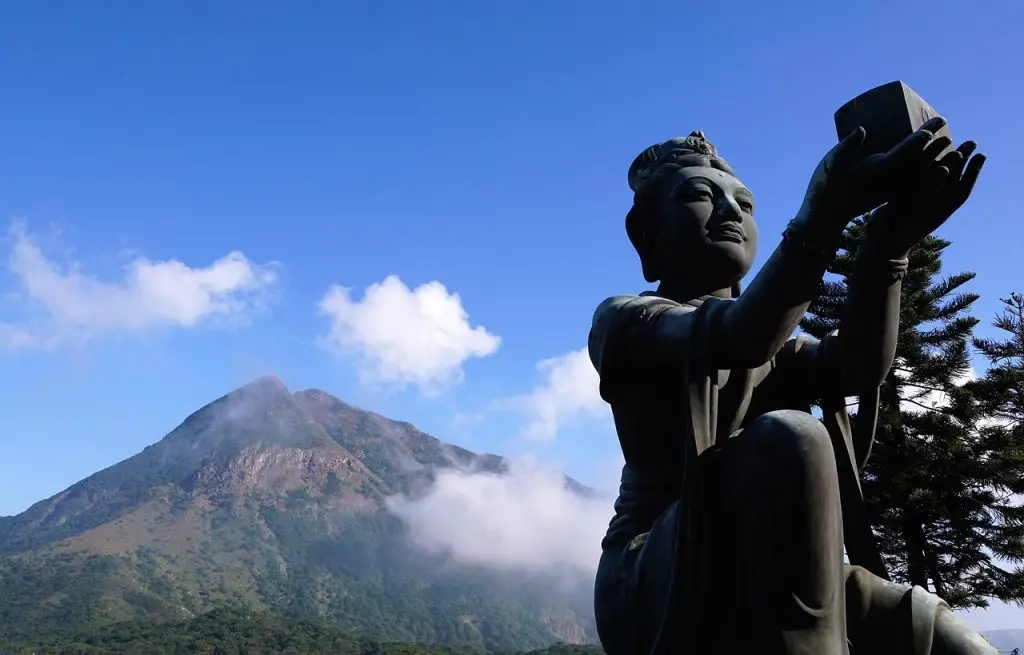Traveling abroad can be an incredible adventure, filled with opportunities to explore new cultures, meet interesting people, and create lasting memories. However, planning an international trip can also be a complex and time-consuming process, especially for first-time travelers. This comprehensive guide will walk you through the essential steps to plan the perfect international trip, from researching your destination to packing your bags. So let’s get started!
Selecting Your Destination:
The first step in planning your international trip is to choose your destination. Factors to consider when making this decision include:
a. Budget: The cost of living and travel expenses vary greatly between countries, so consider your budget when narrowing down your options.
b. Climate: The time of year you plan to travel can significantly affect the weather and climate of your chosen destination, so consider seasonal weather patterns when making your decision.
c. Language: If you don’t speak the local language, you may want to opt for a country where English is widely spoken, or consider learning a few basic phrases in the local language to help you navigate your trip.
d. Interests: Consider your hobbies and interests, such as art, history, or outdoor adventures, when selecting a destination that will offer engaging experiences.

Researching Your Destination:
Once you’ve chosen your destination, it’s time to gather information about the country, including visa requirements, local customs and etiquette, and safety concerns. Useful resources for this research include:
a. Government travel websites: These websites, such as the U.S. Department of State’s travel website, provide essential information about entry requirements, vaccinations, and travel advisories.
b. Guidebooks: Lonely Planet, Fodor’s, and Frommer’s are just a few examples of popular travel guidebook series that offer extensive information on destinations worldwide.
c. Travel blogs and forums: Travelers’ firsthand experiences can provide valuable insights into what to expect and can help you discover hidden gems that may not be mentioned in guidebooks.
Securing Your Passport and Visa:
Before you can travel internationally, you will need a valid passport. If you don’t already have one, apply for a passport as soon as possible, as processing times can vary. If you already have a passport, ensure it has at least six months of validity remaining from your planned return date.
Next, determine whether you need a visa to enter your chosen destination. Visa requirements vary by country and nationality, so consult your destination country’s embassy or consulate website for specific information. Keep in mind that obtaining a visa can take several weeks, so begin the process well in advance of your travel dates.

Booking Flights and Accommodations:
Start by searching for flights and accommodations early to secure the best deals. Some tips for finding the best prices include:
a. Being flexible with your travel dates: Airfare and accommodation prices can fluctuate significantly based on the day of the week, time of year, and proximity to holidays.
b. Using fare comparison websites: Websites like Google Flights, Kayak, and Skyscanner can help you compare prices across multiple airlines and find the best deals.
c. Booking accommodations through reputable websites: Websites like Booking.com, Airbnb, and Expedia offer a wide range of accommodation options, including hotels, hostels, and vacation rentals.
Creating an Itinerary:
Developing a detailed itinerary for your trip can help you make the most of your time abroad. Start by listing the attractions, activities, and experiences you want to include in your trip. Then, organize these items into a logical sequence, taking into account factors such as travel time, opening hours, and tour schedules. Be sure to include some downtime and buffer days in your itinerary, as it is essential to have time to relax and adjust to your new environment, especially if you’re dealing with jet lag. Also, remember that things don’t always go as planned, so having some flexibility in your schedule can help you adapt to unforeseen changes. Here are some tips for creating an efficient and enjoyable itinerary:
a. Prioritize: Determine which attractions and activities are most important to you and prioritize them in your schedule. This ensures that you don’t miss out on the highlights of your destination.
b. Group activities by location: Organize your activities based on their proximity to one another to minimize travel time and make your days more efficient.
c. Consider guided tours: Guided tours can offer a more in-depth and efficient way to explore certain attractions, especially those that are historically or culturally significant.
d. Reserve tickets in advance: Many popular attractions require advance reservations or have limited availability, so book your tickets well ahead of time to secure your spot.
e. Leave room for spontaneity: Don’t overbook your days; instead, allow for some flexibility to explore unexpected opportunities and experiences that you may discover during your trip.
Preparing for Your Trip:
As your departure date approaches, it’s essential to start preparing for your journey. This includes taking care of any necessary vaccinations, purchasing travel insurance, and gathering important documents. Additionally, consider the following steps:
a. Create a packing list: Making a list of everything you need to pack can help ensure you don’t forget any essentials. Be sure to consider the weather, activities, and local customs when deciding what clothing and items to bring.
b. Purchase any necessary travel gear: Depending on your destination and activities, you may need specialized gear, such as hiking boots, a travel adapter, or a waterproof jacket. Invest in quality gear that will serve you well throughout your trip.
c. Notify your bank and credit card companies: Inform your financial institutions of your travel plans to avoid any issues with your cards being flagged for suspicious activity while abroad.
d. Make copies of important documents: Have digital and physical copies of your passport, visas, travel insurance, and other vital documents in case they are lost or stolen during your trip.

Navigating Local Customs and Etiquette:
Understanding and respecting the local customs and etiquette of your destination country is essential for a smooth and enjoyable trip. Some ways to familiarize yourself with these customs include:
a. Researching local etiquette: Learn about cultural norms, such as appropriate dress, greetings, and dining customs, to ensure you are respectful of local traditions.
b. Learning a few basic phrases: Knowing simple phrases in the local language, such as “please,” “thank you,” and “excuse me,” can go a long way in making a positive impression on the locals.
c. Being aware of local laws: Familiarize yourself with local laws, especially those that may differ significantly from your home country, to avoid any misunderstandings or legal issues.
Staying Safe and Healthy:
While traveling, it’s important to prioritize your safety and well-being. Here are some tips for staying safe and healthy during your international trip:
a. Follow local safety advice: Pay attention to any travel advisories or warnings from your government and local authorities and follow their recommendations.
b. Register with your embassy: Registering with your embassy or consulate in your destination country can help them locate and assist you in case of an emergency.
c. Be cautious with food and water: Stick to bottled or purified water in countries with questionable tap water, and be cautious when consuming street food or raw fruits and vegetables.
d. Protect yourself from illness: Take necessary precautions to avoid mosquito-borne diseases, such as using insect repellent and wearing protective clothing. Additionally, make sure you are up to date on all recommended vaccinations for your destination.
e. Maintain situational awareness: Be aware of your surroundings and trust your instincts. If something doesn’t feel right, remove yourself from the situation.
f. Keep your belongings secure: Use a money belt or hidden pouch to store your passport, cash, and credit cards. Avoid displaying expensive items, such as jewelry or electronics, which could make you a target for theft.
Managing Your Finances:
Budgeting for your international trip is crucial to ensure you can enjoy your experience without financial stress. Here are some tips to help you manage your finances while traveling:
a. Create a daily budget: Estimate your daily expenses, including accommodations, food, transportation, and activities, and set a daily budget to help you stay on track.
b. Track your spending: Use a budgeting app or a simple notebook to record your expenses and monitor your spending throughout your trip.
c. Be prepared for emergencies: Set aside an emergency fund to cover any unexpected expenses, such as medical bills or last-minute changes to your travel plans.
d. Use local currency: Familiarize yourself with the local currency and exchange rates, and try to pay in the local currency whenever possible to avoid unfavorable conversion rates.
e. Minimize foreign transaction fees: Use a credit card with no foreign transaction fees and consider using a debit card that reimburses ATM fees for cash withdrawals.
Staying Connected:
Staying connected while traveling can help you share your experiences with loved ones, access important information, and stay safe. Some options for staying connected include:
a. Using local SIM cards: Purchasing a local SIM card for your unlocked phone can provide you with a more affordable and reliable way to access data and make calls while abroad.
b. Relying on Wi-Fi: Many hotels, cafes, and public spaces offer free Wi-Fi, which can be used for messaging, video calls, and browsing the internet.
c. Renting or purchasing a portable Wi-Fi hotspot: Portable Wi-Fi hotspots can provide you with a reliable internet connection while on the go, but be aware of data limits and additional fees.
d. Downloading offline resources: Before your trip, download maps, translation apps, and other useful resources that can be accessed without an internet connection.
Conclusion:
With proper planning, research, and preparation, you can ensure that your international trip is an enjoyable and memorable experience. By following the steps outlined in this guide, you’ll be well on your way to exploring the world and immersing yourself in new cultures. So pack your bags, and embark on the adventure of a lifetime!







